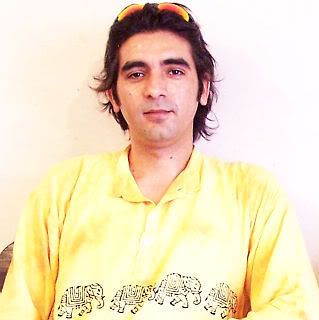
Dharm~Eva Hato Hanti, Dharmo Rakshati Rakshitah!
Tasma~Dharmo Na Hantvyo, Ma No Dharmo Hato~Vadhit!!
Dharm - Dharma
Eva - used to emphasis
-- Dharm~Eva - Dharma alone/Dharma indeed
Hato - Being killed/destroyed
Hanti - Kills/destroyes
Dharmo - From Dharma
Rakshati - To protect
Rakshitah - The protected one
Tasma - Hence/Therefore
Dharmo - From Dharma
Na - Not
Hantvyo - To kill/destroy
Ma - Do not
No - Nor
Dharmo - From Dharma
Hato - Being killed/destroyed
Vadhit - Killed
In my understanding here Manu is trying to state a fact rather than an advice.
The meaning I can get from this, is:
Dharma destroyed, destroys; Dharma protects, the protected.
Therefore, Dharma does not destroy, nor Dharma can be destroyed.
Infact Manu is trying to pull the "Dharm" out from protect-destroy, good-bad kind of trap.
If I try to compare this with Gravitational Force, I'll say:
If Gravitational Force is destroyed, everything on earth will fall apart; Gravitational Force keeps everything protected on earth. Neither Gravitational Force can be destroyed, nor does Gravitational Force destroy.
In my interpretation, Manu is just stating a fact that Dharm is an essence of everything. It is neither a philosophy, nor moral obligation, or religious doctrine, or some kind commandments, or any faith or belief.
Here one thing should be noted that Dharm and Dharan (and DhAran) comes from same root, which means 'Contain'. Thus it can be said (if I may say so):
Dharm is a name given to that essence, which contains everything, just like Gravitation is a name given to that force which hold everything on earth.
Comments are welcome!!!

7 comments:
Very good explanation and i agree. What is Dharma is to human kind Gravitation is to universe.
And to add to it ...
yasya ya dharyati, sa tasya dharma'.
Means: Whoever believes in 'whatever', that is his 'whatever'. Replace 'whatever' with 'Dharma'. In other words, acquired beliefs & practicing them in reality are collectively called 'dharma' (that is why we say 'dharm ka palan karna')
:)
Sudip121@gmail.com
Overall the posting was good, but one must delve into this universal truth with accurate interpretation. The last line was not translated properly.
These comments mostly relate to grammer that lead to confusion in what is meant by this verse. When different words are joined using a sandhi (joints based on specific rules of grammer), it is important to know how to break the co-joints. There are several corrections needed (see below).
Dharm is not how it is written or pronounced in Sanskrit. It is "Dharma". Any half ending will be clearly indicated using a halanth, which is a stroke at the base of the last letter. If it was dharm then the letter "ma" would have the halanth stroke at the bottom of letter "ma". Since it does not have that, the complete letter "ma" shall be pronounced.
"Dharma" being the root word each Vibhakti modifies the word based on context. There are seven vibhaktis in Sanskrit language, but let us not go into that now. Those interested can refer to: http://sanskritdocuments.org/learning_tools/grammarintro.pdf
The correct break out of this verse would be as follows:
Dharma+Eva = dharmEva, Hato (root word is hatah, modified by vibhakti to hato meaning, the person who destroyed), hanti = destroys (refers to person on whom the act of destruction takes place).
Overall it means, anyone who destroys dharma (due to willful wrong doing), will be destroyed by that natural law or universal dharma that applies to all beings.
The next part states the opposite, meaning one who protects dharma will get protected by that universal law.
TasmAt (note there is a halnth here), but since it is joined with Dharma it becomes "tasmAddharmO" the sandhi follows succeeding syllable "da" note therefore it becomes "dd" indicating a sandhi.
tasmaat = therefore.
dharmo na hantavyo = dharma should not be destroyed or violated,
ma = not, No = us, dharmo hato vidhih = become destroyed by destiny; meaning "let us not become victims of such natural destruction" (by violating dharma).
Therefore, Manu is not stating the fact, but is quoting a universal law that applies to the universe and those reside in it. You can apply this to the environment around you, also to kings who rule their subject justly or to head of a family who must be fair to all its members, or even to the individual who as a person wears different roles such as brother / sister, official, professional, father / mother, grant parent etc. In every role there is a natural law that you must follow, otherwise nature will bring justice. This is the true meaning. The mis-interpretation of the last line lead to a different conclusion.
Thanks for clear and acceptable interpretation. I'm glad to your sanskrit grammar knowledge.
The pronunciation of sanskrit is different from hindi.धर्म is pronounced as dharma,not dharm.धर्म् is dharm.धर्मा is dharmaa.moreover, unlike the hindi word dharm,dharma does not mean religion. it means duty and righteousness. for eg.the dharma of a soldier is to fight for his country. the dharma of a teacher is to teach. the dharma of a student is to learn.......
The pronunciation of sanskrit is different from hindi.धर्म is pronounced as dharma,not dharm.धर्म् is dharm.धर्मा is dharmaa.moreover, unlike the hindi word dharm,dharma does not mean religion. it means duty and righteousness. for eg.the dharma of a soldier is to fight for his country. the dharma of a teacher is to teach. the dharma of a student is to learn.......
nice words dharmo rakshati rakshitah thanx for sharing with us
Post a Comment